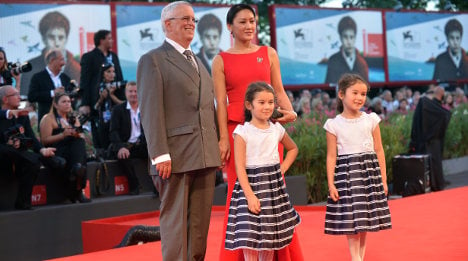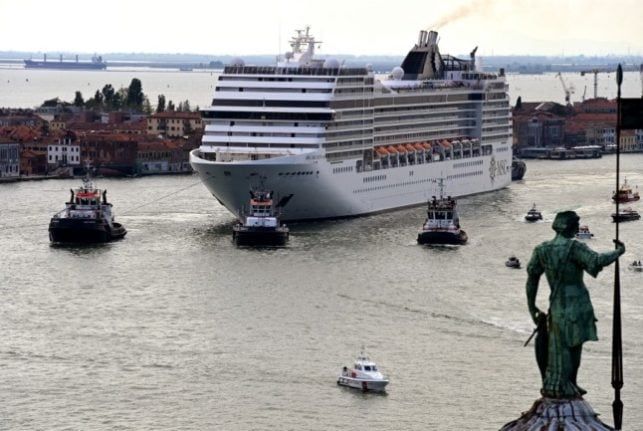French director Xavier Beauvois, of Of Gods and Men fame, tells the tale of down-and-out Belgian and Algerian friends in Switzerland who hit on the idea of the theft partly out of greed and partly as a way to meet healthcare costs.
The tragicomedy – in the running for the Golden Lion – draws an engaging Chaplin-esque performance from Benoit Poelvoorde, with laughs in particular from a scene where the bungling grave-robbers discover they are not the only ones to have demanded a ransom.
But the tribute to the hero of The Kid and The Gold Rush wanes in the second half and the film appears to lose its way with a chaotic mix of Gregorian chants, organ music and jazz.
Chaplin's son Eugene, who plays a bit role in the flick along with one of the star's grandchildren, Dolores Chaplin, told journalists in Venice that the film captured well the difficult period when his father's body was snatched.
"The coffin was stolen for quite some time, and we didn't know who was behind it. There were threats, my younger brother was threatened," he said.
"When we eventually found my father's coffin in a field next to a forest, on the edge of a canal, it was marvellous," he said.
Chaplin's coffin was taken by a pair of immigrants from Poland and Bulgaria in 1978 and recovered after a large-scale police search, during which 200 phone kiosks were watched and the phone at the Chaplins' home was tapped.
Demands of £400,000 (€300,000) were made for return of the body, but Chaplin's widow Oona refused to pay, saying that her husband would have "thought it ridiculous".
Beauvois said the idea for the film had come to him while re-watching City Lights: "I remembered that his coffin had been stolen for ransom and thought to myself: 'This is a movie!'"
"I wanted to transform it into a tale whereby Chaplin would be a sort of genie, like Aladdin's genie, who grants wishes," he said.
The challenge of revisiting the silent actor's famous Tramp figure in the two immigrants was too good to resist for a director who said he believes "Chaplin is cinema itself, a sacred figure."



 Please whitelist us to continue reading.
Please whitelist us to continue reading.
Member comments